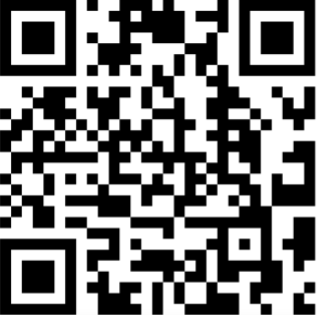The Most Important Customer Service Skills Your Employees Need to Have
Today’s illiterate are those who are unable to make connections with others
This blog will answer the following four questions:
- What are soft skills, and should we call them?
- Which service aptitude skills are most important for customer-facing employees to deliver an expectational customer experience?
- Which of the nine service aptitude skills can improve with training, and which cannot?
- How do we train our employees on the nine service aptitude skills?
Why CX is at an all-time low
A key reason why, according to Forrester’s Customer Experience Index (CX Index™) rankings report, CX quality among brands has plummeted to an all-time low is due to the lack of soft skills customer-facing employees have.
We live in the “digital disruption era,” in which technology has provided unprecedented advances in information, knowledge, instant access, and entertainment. However, as convenient as these advances make our lives, they have also changed how we communicate, behave, and think, dramatically declining our people skills.
Relationship Disadvantaged
As a society, we are now relationship disadvantaged. We no longer become curious about others or eager to engage in conversations. We spend less time with friends via in-person interactions. The younger generation primarily communicates electronically, and the explosion of e-commerce means we go out less and less. When we do, we now have the option of self-service checkout to avoid interacting with other human beings. A simple interaction can have profound effects on someone’s emotional well-being.
Today, people are longing for a sense of community, belonging, and purpose, a world in which people actually know our names, what we do, what is important to us, and trust in one another. Today, trust is an endangered value. Personally and professionally, success is increasingly about creating and building human connections.
In the past, soft skills had a reputation for being nice to have in business, however, studies have shown that strong soft skills boost employee productivity and retention by 12% and deliver a 250% return on investment. Another study reported that emotional intelligence skills make up nearly 90% of the attributes that set high-performing leaders apart.
*Related – Webinar on 12 September: Training Your Employees on the Critical Soft Skills Needed Today
1. What are soft skills, and what should we call them?
Should we call them soft skills, human skills, emotional skills, interpersonal skills, emotional intelligence (EQ), hospitality skills, or people skills? We call them ‘Service Aptitude Skills’. Service Aptitude skills do not apply to the technical or operational side of the experience. However, they are among the most critical parts of an organization’s customer experience. The quality of your customer service and your organization’s customer service level comes down to one thing and one thing only. The average service aptitude of every employee you have.
Service Aptitude: A person’s ability to recognize opportunities to meet and exceed customers’ expectations, regardless of the circumstances.
Service aptitude represents the hospitality side only. This means how an employee makes another person feel. To be a company that consistently delivers outstanding customer service by all, these characteristics need to be screened for in the interview process, a mandatory part of your new employee training, and constantly revisited with your existing employees.
While these skills seem like basic expectations of individuals in the workforce, one study showed that nearly 60% of leaders in the U.S. believe it’s difficult to find candidates with soft skills. That is why it is the burden of companies and the training they provide to develop these constantly.
2. Which service aptitude skills are most important for customer-facing employees to deliver an expectational customer experience?
- Genuinely likes others – a person who truly enjoys the company of others and takes a sincere interest in their well-being and happiness. They have a willingness to engage with people.
- Happy/Positive/Optimistic – a person who maintains a cheerful and hopeful outlook. They tend to see the good in situations, expect positive outcomes, and radiate joy and contentment. They are constantly smiling.
- Friendly, Kind & Caring – A friendly person is approachable and easy to talk to. They go out of their way to be considerate, generous, and helpful to others.
- Charismatic – they are a people magnet. They give off a positive energy that people want to be around.
- Empathetic – the ability to put themselves in someone else’s shoes and respond with compassion and understanding.
- Good Listener – someone who actively engages in hearing what others are saying, understands their messages and responds thoughtfully. This involves paying full attention, not interrupting, and showing empathy and understanding.
- Insatiable curiosity – a relentless desire to learn and understand more about their situation. People with insatiable curiosity always seek new knowledge, ask questions, and explore various topics enthusiastically. They do not assume anything and are open to learning.
- Strong at making a connection, building a rapport/relationships – the ability to establish meaningful and positive interactions with others quickly. Building rapport involves finding common ground, showing genuine interest, and creating a sense of trust and mutual respect.
- Trusting/charitable assumption – people who give others the benefit of the doubt and assume the best intentions in their actions and words.
3. Which of the nine service aptitude skills can improve with training, and which cannot be?
Not all nine service aptitude skills can be trained on. The list is in the order of what you need to screen for in your interview process and what can be improved through training. The first four are the service aptitude skills that cannot be trained:
- Genuinely likes others – a person who truly enjoys the company of others and takes a sincere interest in their well-being and happiness. They have a willingness to engage with people.
- Happy/Positive/Optimistic – a person who maintains a cheerful and hopeful outlook. They tend to see the good in situations, expect positive outcomes, and radiate joy and contentment. They are constantly smiling.
- Friendly, Kind & Caring – A friendly person is approachable and easy to talk to. They go out of their way to be considerate, generous, and helpful to others.
- Charismatic – they are a people magnet. They give off a positive energy that people want to be around.
Hire for the Heart, Train for the Part
All the training in the world will not make a person who doesn’t enjoy others change. The same goes for if you find people who are negative and are generally unhappy. Your goal is to find candidates who have exceptional service aptitude and are happy, kind, caring, friendly, positive, optimistic, grateful, and genuinely like others.
This guide is the best resource on Interview Question Guide to Gauge Service Aptitude.
This guide focuses on whether the candidates have the potential to provide excellent customer experience skills, primarily soft skills. These questions should be combined with other interview questions not listed in our Guide that assess skills like technical knowledge, work ethic, cultural fit, etc. We also do not recommend using all these questions; pick the ones that best fit your company’s customer service culture.
*Related – Conducting Interviews Like Detective Columbo
4. How do we train our employees on the top service aptitude skills?
The following service aptitude skills need to be a mandatory part of your new employee onboarding training and constant retraining of your existing employees and excellent resources on each:
Empathetic – the ability to put themselves in someone else’s shoes and respond with compassion and understanding.
Resources:
Good Listener – someone who actively hears what others are saying, understands their messages, and responds thoughtfully. This involves paying full attention, not interrupting, and showing empathy and understanding.
Resources:
- The Relationship Economy book
- Talking Less, Listening More: Can You Keep Quiet For Longer Than 18 Seconds?
Insatiable curiosity – a relentless desire to learn and understand more about their situation. People with insatiable curiosity always seek new knowledge, ask questions, and explore various topics enthusiastically. They do not assume anything and are open to learning.
Resources:
Strong at making a connection, building a rapport/relationships – the ability to establish meaningful and positive interactions with others quickly. Building rapport involves finding common ground, showing genuine interest, and creating a sense of trust and mutual respect.
Resources:
- Meet as Strangers Leave as Friends Ted Talk
- How to Train Your Employees to be Great at Relationship Building
- The Relationship Economy (Part 2): 5 Keys to Relationship Building
- How Relationships are the Most Important Factor in your Personal and Professional Success
Trusting/charitable assumption – people who give others the benefit of the doubt and assume the best intentions in their actions and words.
Resources:
- Be a Zero Risk Company with a Great Customer Loyalty Strategy: Screw Up First
- How to be a Zero Risk Company
- When faced with an upset customer, your employees should do the LEAST
Ask Us!
Have a question for our experts? We enjoy answering questions from our blog followers & The Customer Service Revolution podcast listeners. You can submit your questions on customer experience, employee experience, or leadership, at tdg.click/ask. Then look for your answer to be published here, or discussed on the podcast!
Upcoming Webinars:
Register Now for Upcoming *Free* Webinars
12 September: Training Your Employees on the Critical Soft Skills Needed Today
26 September: Selling as an Experience
10 October: Turning your Contact Center into a Relationship Center
24 October: Creating Your Signature Experience
14 November: Forget Customer Surveys; Learn Real CX KPI’s
6 December: Service Recover Never and Always
NEW Interactive Livestream Workshops!
What is it?
These interactive sessions will give you and your leadership team the ability to work on your customer and employee experience alongside The DiJulius Group consultants from wherever you are.
Who is it for?
This two day workshop is for anyone who shapes, leads or manages the customer or employee experience or leads those who deliver it. (Note: customer can also refer to client, patient, user, consumer, buyer or patron)
This quarter’s topic: Building Exceptional Journeys for Customers and Employees
Journey Mapping is the powerhouse of customer and employee experience. It’s way more than just identifying touchpoints. It’s a direct link to creating the standards and consistencies that identify your brand. It’s the experience every customer and employee who does business with you will come to expect and crave.
Lack of standards
Customer complaints
Unengaged employees
Implementation that sticks
Finding A+ employees
If you’re trying to:
Create consistency
Scale your business
Build a loyal customer base
Retain your workforce
You don’t want to miss this.
When is it?
Journey Map Your Signature Customer Experience:
October 28, 2024
12:00 PM ET – 3:00 PM ET
Journey Map Your Signature Employee Experience:
November 4, 2024
12:00 PM ET – 3:00 PM ET
What if we already have a journey map?
Journey maps should be reviewed regularly. This is a great opportunity to update what you’re currently using, or to look at additional areas, ie the vendor experience, with guidance from the experts.
What’s included?
- Registration for up to 5 team members
- full access to both days
- Digital workbook for both days
- Replay post-event, 4 weeks access
- Access to live one-hour zoom Q&A one week post-event
What’s my investment?
Your Introductory Investment for this two day workshop, includes up to 5 registrants: $799, $249



